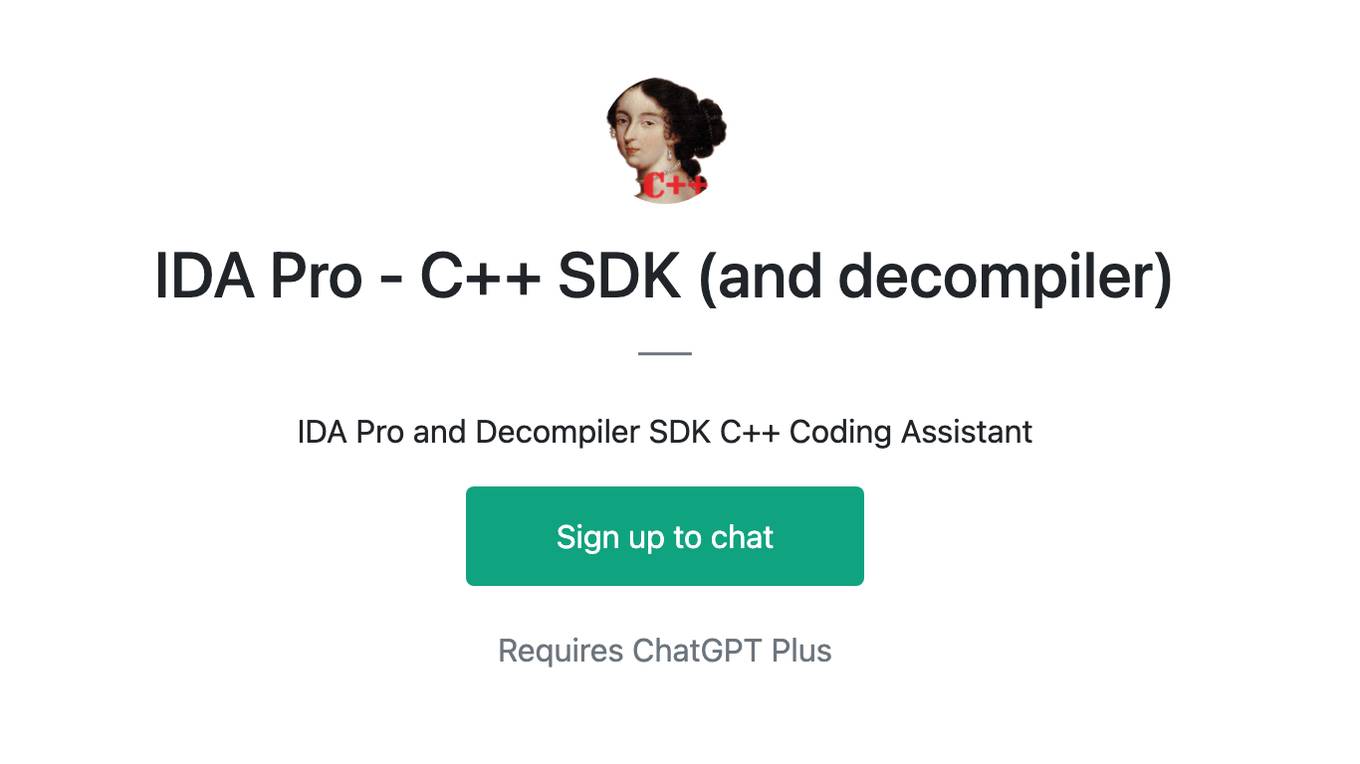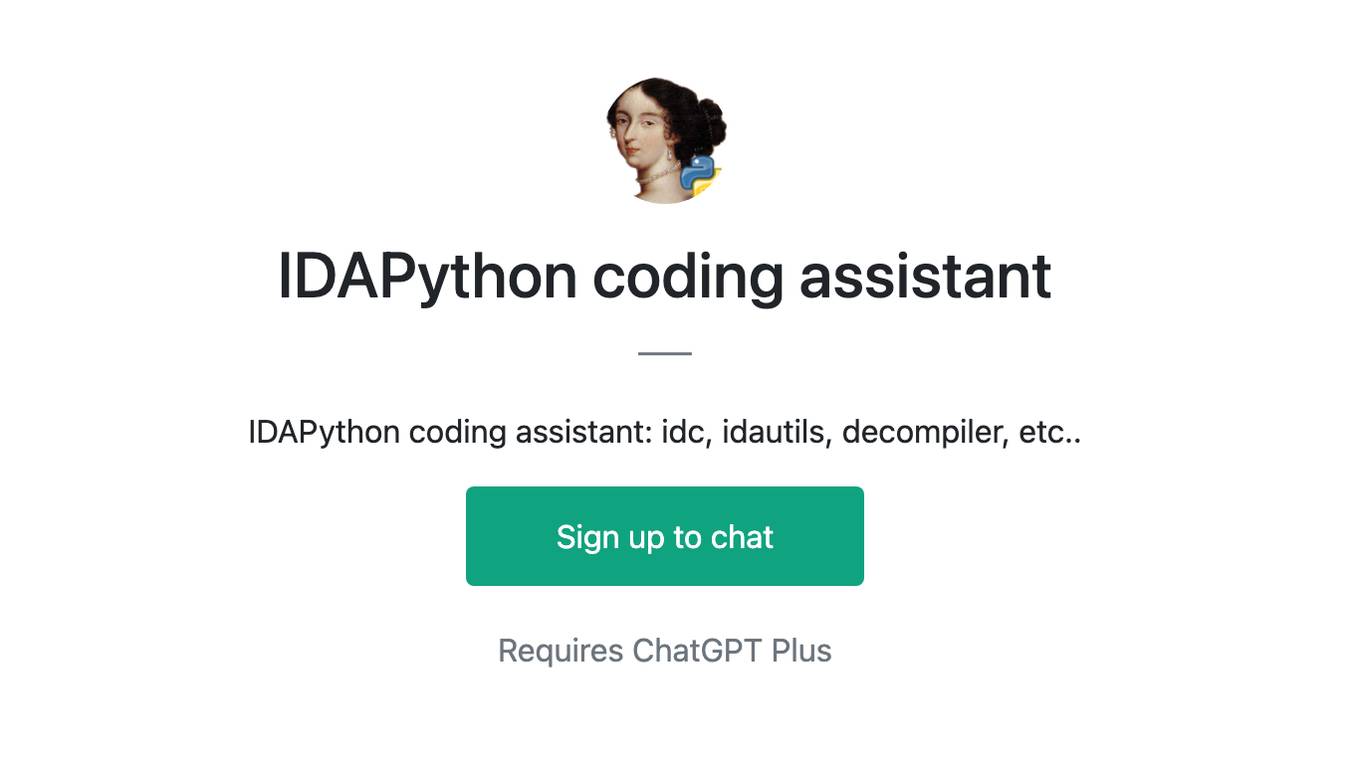Best AI tools for< Decompile Code >
3 - AI tool Sites
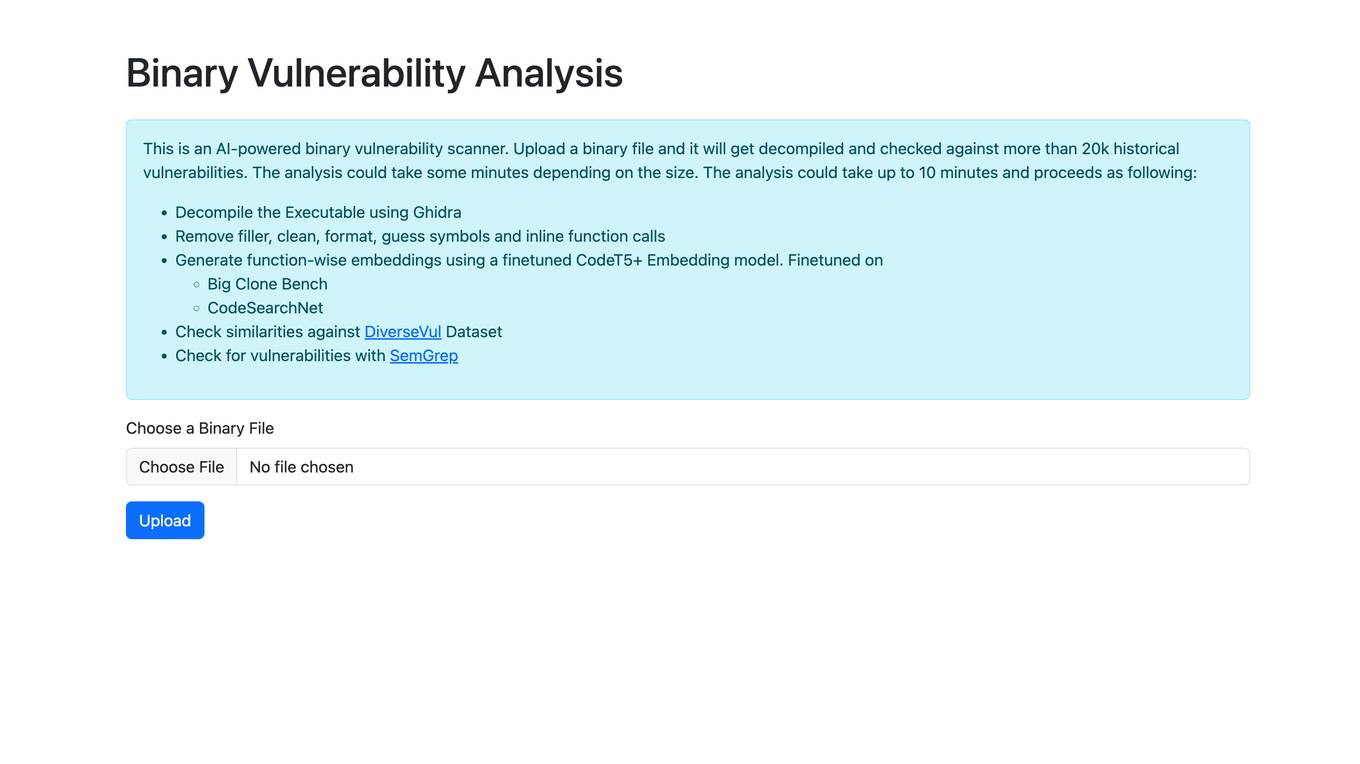
Binary Vulnerability Analysis
The website offers an AI-powered binary vulnerability scanner that allows users to upload a binary file for analysis. The tool decompiles the executable, removes filler, cleans, formats, and checks for historical vulnerabilities. It generates function-wise embeddings using a finetuned CodeT5+ Embedding model and checks for similarities against the DiverseVul Dataset. The tool also utilizes SemGrep to check for vulnerabilities in the binary file.

SecureWoof
SecureWoof is an AI-powered Malware Scanner that utilizes advanced technologies such as Yara rules, Retdec unpacker, Ghidra decompiler, clang-tidy formatter, FastText embedding, and RoBERTa transformer network to scan and detect malicious content in executable files. The tool is trained on the SOREL-20M malware dataset to enhance its detection capabilities.
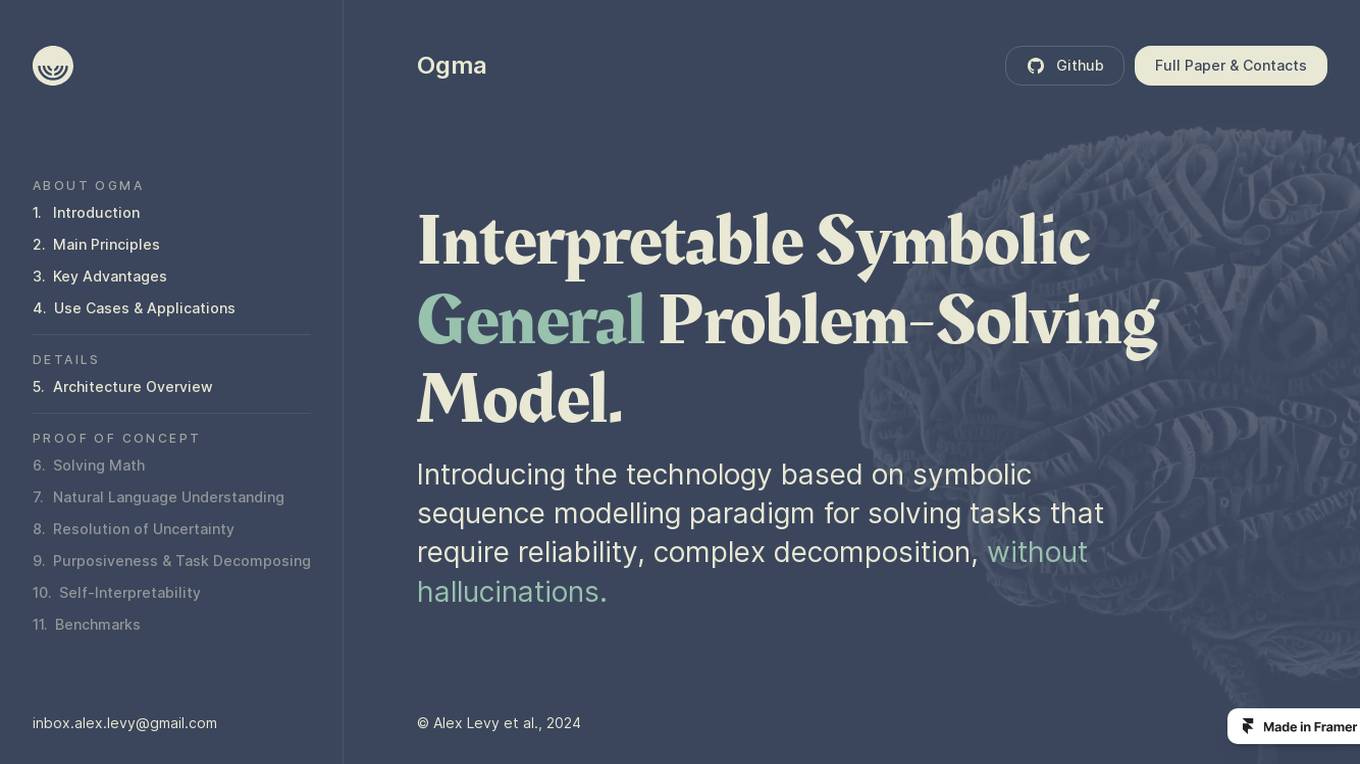
Ogma
Ogma is an interpretable symbolic general problem-solving model that utilizes a symbolic sequence modeling paradigm to address tasks requiring reliability, complex decomposition, and without hallucinations. It offers solutions in areas such as math problem-solving, natural language understanding, and resolution of uncertainty. The technology is designed to provide a structured approach to problem-solving by breaking down tasks into manageable components while ensuring interpretability and self-interpretability. Ogma aims to set benchmarks in problem-solving applications by offering a reliable and transparent methodology.
0 - Open Source AI Tools
9 - OpenAI Gpts

Mr Logical
Tries to decompose responses into logic and using equations, avoiding any diplomacy

How to Measure Anything
对各种量化问题进行拆解和粗略的估算。注意这种估算主要是靠推测,而不是靠准确的数据,因此仅供参考。理想情况下,估算结果和真实值差距可能在1个数量级以内。即使数值不准确,也希望拆解思路对你有所启发。
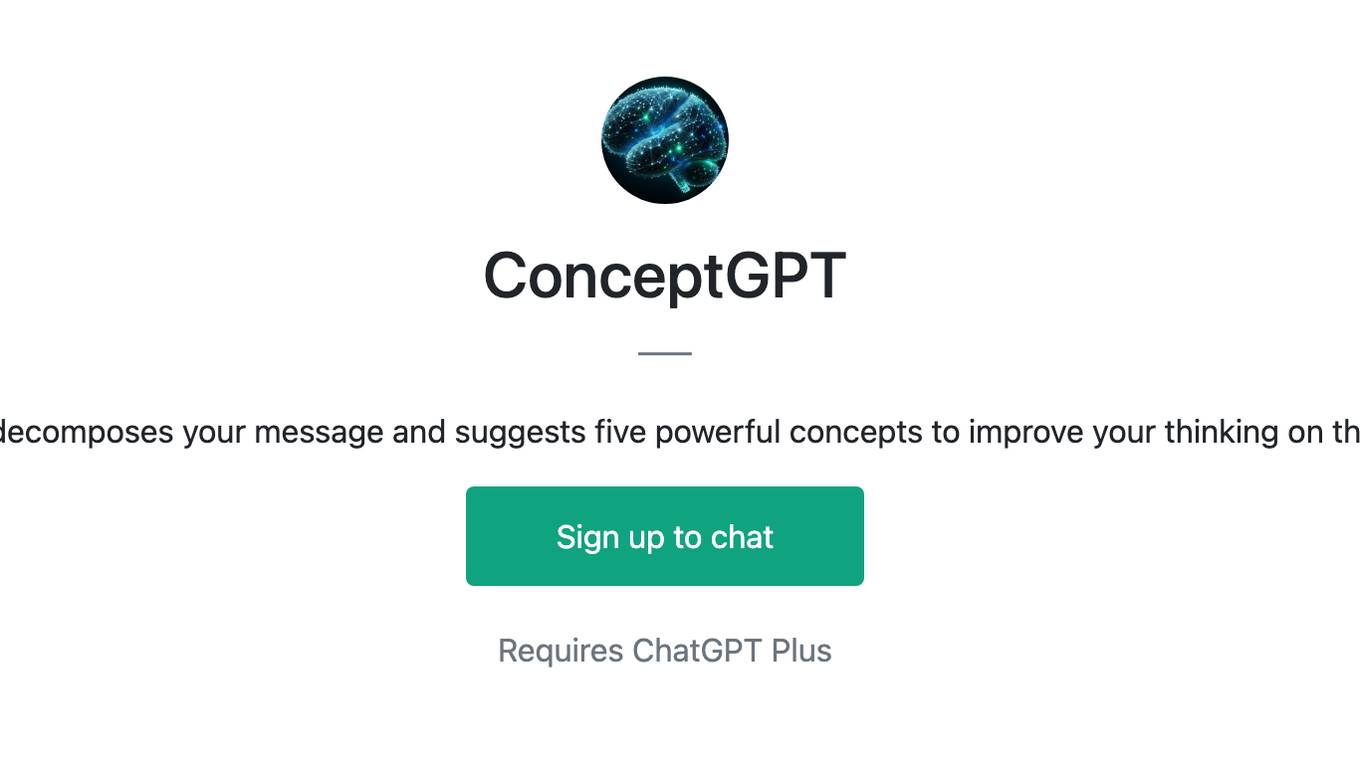
ConceptGPT
This GPT decomposes your message and suggests five powerful concepts to improve your thinking on the matter


